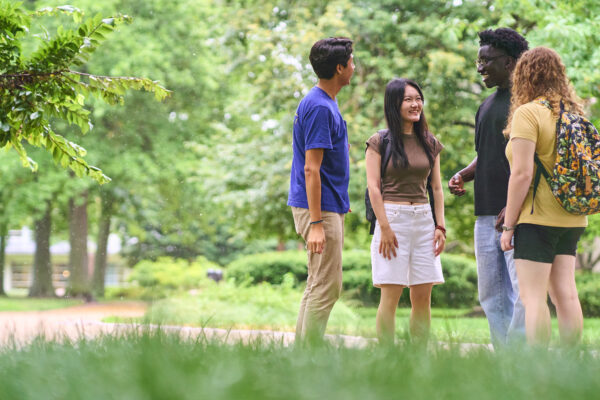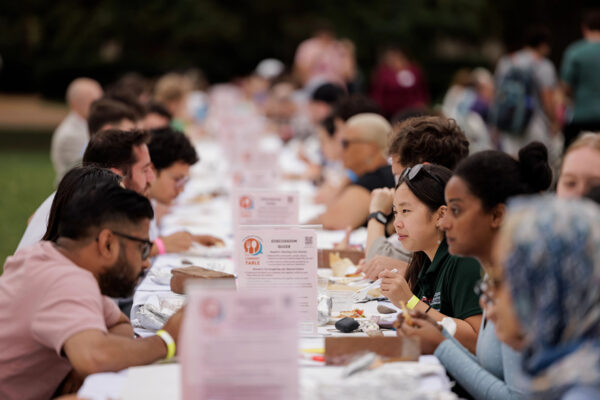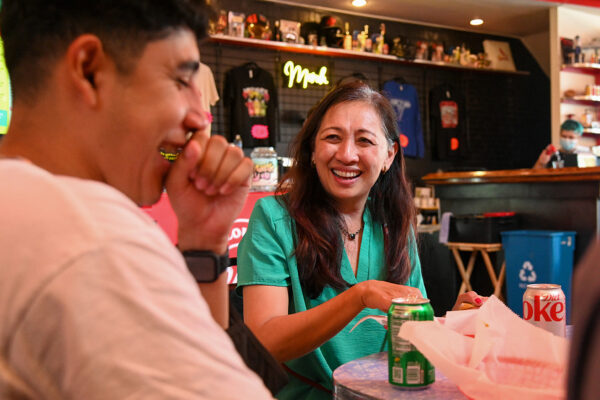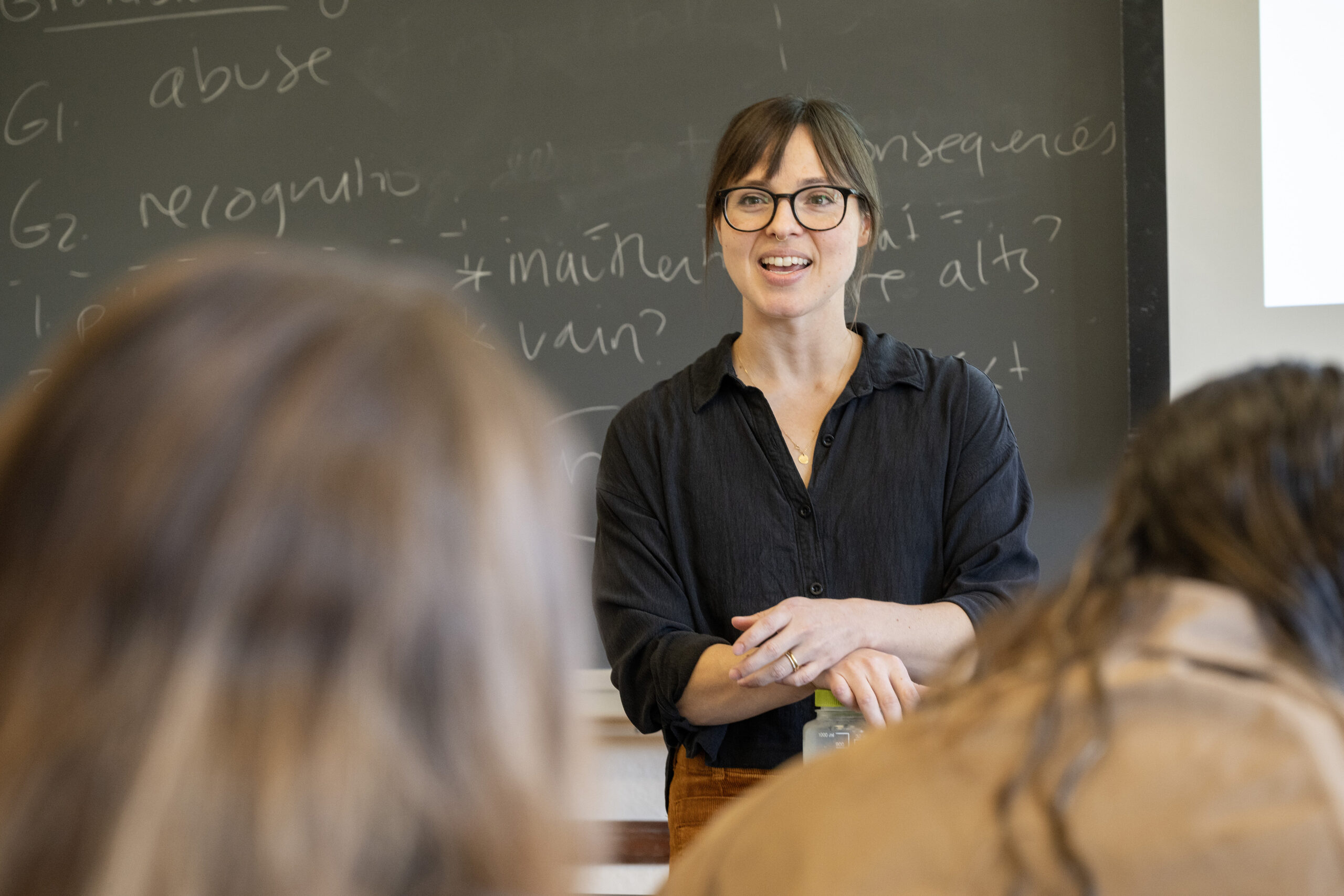
In philosophical discourse, the principle of charity holds that one should grapple with the best version of an opposing argument.
“The idea is that the most interesting and compelling interpretation is also likely to be the truest,” said Allan Hazlett, a professor of philosophy in Arts & Sciences at Washington University in St. Louis. “That can be a hard thing to learn.”
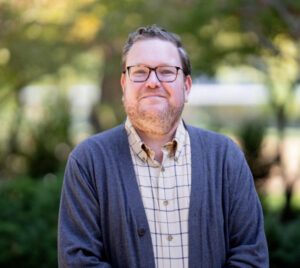
Hazlett specializes in epistemology, or the study of knowledge. He has long been fascinated by the topic of disagreement. How do we reason? When do we apply value judgments? And critically, in an age of polarization, what do we owe to those who arrive at different conclusions?
Over the past year, Hazlett and two Arts & Sciences colleagues — Frank Lovett, a professor of political science, and Ron Mallon, a professor of philosophy and of philosophy-neuroscience-psychology — have served as the executive committee for WashU’s new Civil Society Initiative. Funded in part by the Frick Initiative and the Weidenbaum Center on the Economy, Government, and Public Policy, in Arts & Sciences, the initiative aims to explore the nature of responsible democratic citizenship.
“We hear a lot about the ‘crisis of democracy,’” Hazlett said. “Our premise is that to address that crisis, we have to improve the spaces that we create, and the strategies that we learn, for reasoning about difficult and controversial topics.”
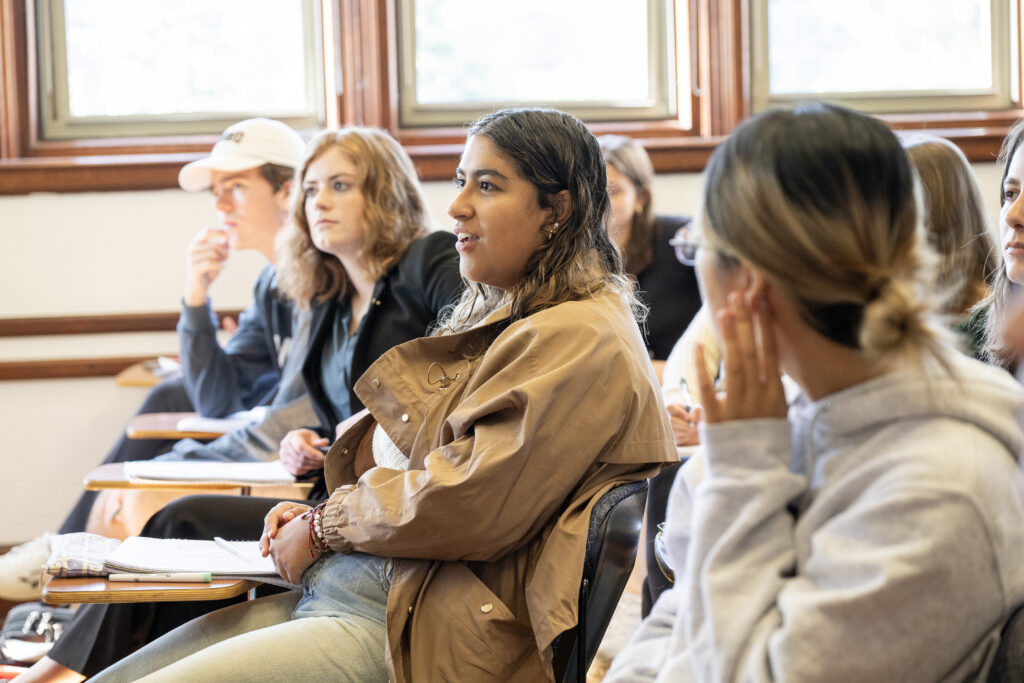
Intellectual engagement
Launched in fall 2023, the Civil Society Initiative encompasses classes, guest speakers, a free high school summer program and a range of public events. Chief among the latter is the student-organized “Dinner & Dialogue” series, which to date has explored immigration, government secrecy, Indigenous land rights and the parameters of protest, among other issues.
“The moderator’s task is to draw out disagreements between panelists while modeling the kind of conversations that we want to promote,” Hazlett said. “Applied like this, even the words ‘opponent’ and ‘debate’ start to sound wrong. We’re really talking about intellectual engagement.”
Though rooted in philosophy, the Civil Society Initiative takes a broad view of its subject, encompassing perspectives from ethics, law, political science, psychology and other fields. It also explores the formal and informal social practices that can shape our thinking about moral and political issues.
“We invite students to study disagreement and polarization theoretically,” Hazlett said. “The more you know about the causes of polarization, the more you know about what’s going on psychologically, the more you can adjust your own ways of engaging — and perhaps approach disagreement with a bit more equanimity.”
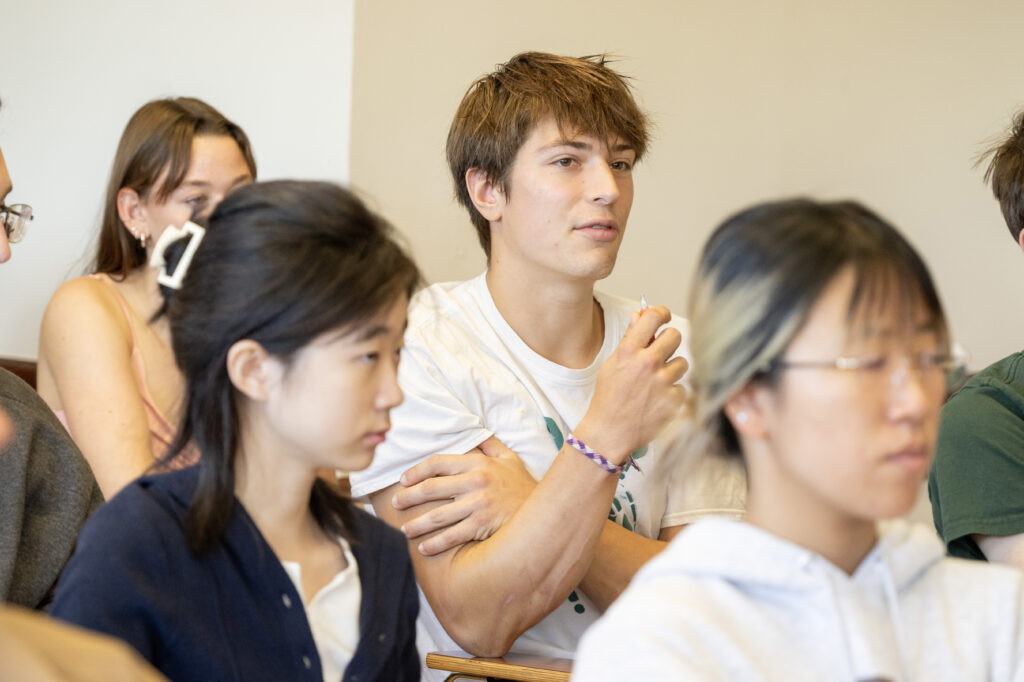
Seeing the challenge
This fall, the Civil Society Initiative launched “Disagreement, Extremism and Polarization.” The course is taught by Lucy Vollbrecht, a postdoctoral fellow whose research explores adversariality in argument as well as virtue signaling and gender.
“In the United States, we think of argument as an important driver for democracy,” Vollbrect said. “We engage argumentatively in all kinds of democratic practices. The high ideal is that we are rational creatures motivated by reason.
“But the fact of the matter is, we often fail to be that way,” Vollbrecht continued. “We don’t respond accurately to information that contradicts our beliefs. We have social norms that change the ability of individual arguers to successfully participate. Social identity, gender, race, class — all affect how credible and accessible argument is.”
Vollbrecht also points to a seeming paradox within democracy itself. Given both a commitment to shared decision-making and a wide diversity of opinion, many voters will end up living with political choices that they don’t personally endorse.
“We often think, well, ‘we can agree to disagree,’” Vollbrecht said. But oftentimes, that is politically untenable. And epistemically, it fails to resolve the issue in question. “So in terms of the class, we’re building up to that challenge. What does it mean to have disagreement between political peers?
“The stakes are really high,” Vollbrecht added. In a polarized environment, “it’s tempting to see people with different political affiliations as beyond the pale of reason. But then we won’t talk to each other anymore. We’ll stop engaging.”
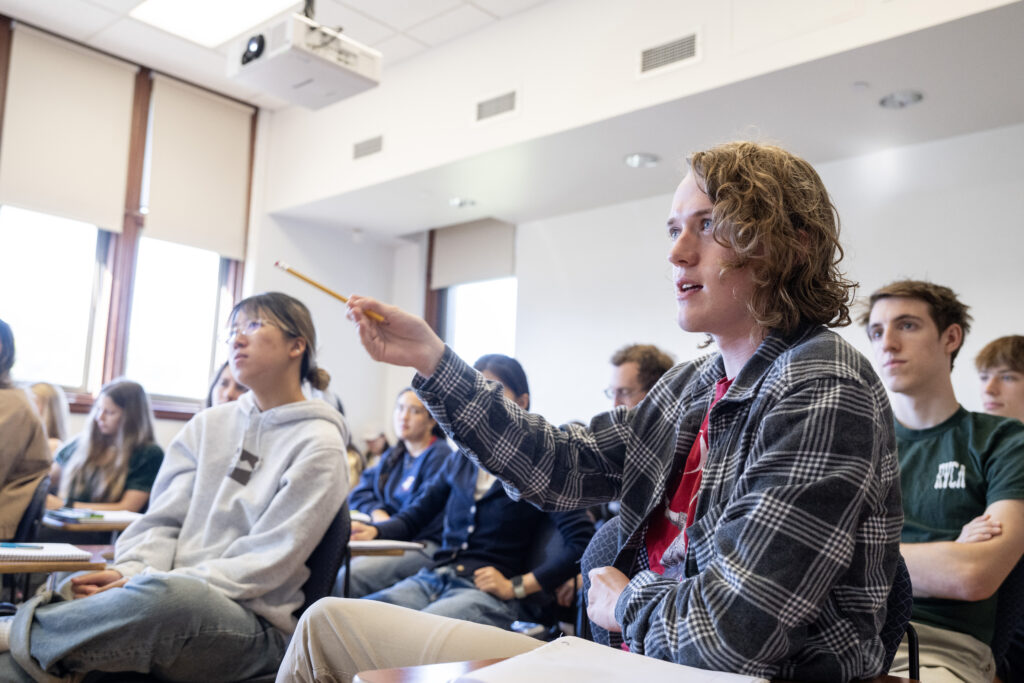
Premises and assumptions
If one’s notion of disagreement descends from law, politics or social media, the forms of philosophical argument can seem counterintuitive. But alongside the principle of charity, philosophy strives to facilitate a robust culture of criticism.
“Students will say, ‘Here’s my view. I think it’s true,’” Hazlett said. To which he responds: “OK, what are the premises of your argument? What assumptions are you making? Let’s list them all, not just one or two.”
This in turn raises another question: Why should one articulate all of one’s assumptions? Won’t that make them easier for others to critique?
Yes, Hazlett said. Exactly.
“In a court of law, or in a congressional floor debate, you probably shouldn’t make it easier for the other side to criticize you,” he explained. “If you’re just trying to win, that wouldn’t be in your interest.
“That’s not what we’re trying to do,” Hazlett concluded. “We’re not just beating up the other side. We’re trying to get to the bottom of things.
“We’re trying to figure out what to think.”
